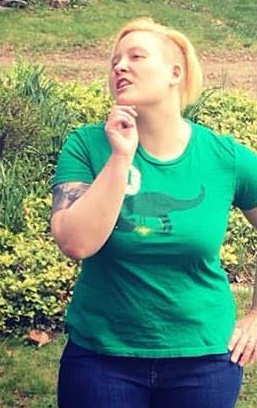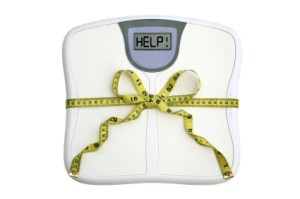Mass media is used to spread messages about what’s normal, what’s not normal, what’s expected and what is to be avoided. These messages are crucial for young children learning to navigate society. The power of mass media to spread these messages increased exponentially with the birth of advertising and the increasing number of household televisions in the 1960’s.
In these early media the messages about how to be a “good woman” were overt. A Google image search for “1960’s advertising women” yields thousands of results, all depicting clear messaging about the role a woman was expected to play. An advertisement for men’s ties declares “Show her it’s a man’s world” and features a woman sitting at her husband’s bedside serving him breakfast while he lounges. The ad barely even shows the ties. An ad for Kellogg’s cereal states “The harder a wife works the cuter she looks” the implication being that if a good wife eats a good breakfast she’ll get more of the housework done.
Ads targeted for women are exclusively for clothing and household appliances, and even those ads don’t focus on the product’s benefits for women. The clothing ads talk about “looking good for your husband” and the ads for appliances discuss how much easier it will be to clean and manage the household with said appliance. The message about how to be a woman was clear: be a well-dressed, beautiful woman who caters to her husband’s every need, raises polite children, and keeps an immaculate house.
In her book The Feminine Mystique Betty Friedan, the mother of feminism, exposed these media messages and railed against the roles women were relegated to during that time. Her book circulated quickly among exhausted housewives and the feminist revolution was born. The feminist movement did a lot to allow women to explore new and different roles in society. Women began to pursue interests outside of the household and some began to work outside the household. This all paved the way for women like me, who have largely taken for granted the ability to live independently from men.
However, the way mass media sends messages to women about who and how they should be has not changed much from the 1960’s. The actual messages have certainly changed, but the insidious nature of the messages has not. Mass media cleverly adapted so that the oppressive messages are not so overt, but the intention is still to keep women small.
Today’s media sends subtle but powerful messages about how women should actually take up space in the world. Simply, it comes down to this: women should not take up all that much space, physically, emotionally, or spiritually. Women may be able to “do more”, but they should still “be less”. When this interpretation of modern media messages to women was first presented to me I thought it sounded a little conspiracy theorist. Like the media was engaged in some grand scheme to “keep the modern woman down”. Initially this seemed ridiculous, but when I began to examine my own feelings about taking up space in this world I realized that I had internalized some very specific messages about my size and my right to take up space.
The most obvious manifestations of these messages in the media have to do with the Western obsession with female thinness. There are many harmful levels to this obsession, all tied back to demanding that women take up less space. First, this obsession demands that women, literally, take up less space. A beautiful woman is thin, frail, but somehow maintains appropriately sized breasts and hips so she can still be objectified as a sex symbol. Packaged within this message is the subtext that a woman’s body must be pleasing to a man and that a large body is not pleasing so it must be fixed.
Enter the diet industry and the obsession with controlling women’s bodies. The diet industry commercializes women’s bodies by convincing women that the right product is the answer to ensuring they take up less space. The right diet, the right meal plan, the right gym, the right workout regimen, the right diet pill. They sell these products by creating the illusion that women have control over their body shape and size and that failure to change the body is a failure of willpower and more importantly a moral failure. If a woman tries hard enough and buys the right product she will be able to fix her obtrusively large body. And if she chooses not to fix her obtrusively large body, and it is a choice, then she is choosing not to conform to society’s expectations and should be shunned.
The obsession with controlling and fixing the body becomes a paralyzing pursuit for women, which detracts from their ability to take up emotional and spiritual space within the world. Many women try to achieve the goal of fixing their bodies by making them smaller through calorie restriction. Diet and “fitness” magazines will suggest meal plans with calories counts around 1200 per day, which is literally starvation. While pursuing the “ideal body” in order to meet society’s goals women make their bodies weak and fragile. Prolonged malnutrition can also start to deteriorate cognitive function, so long term dieting can actually make women less intelligent. Not to mention it’s nearly impossible to think about anything when all you want to do is eat, but your goal is not to eat. I speak from personal experience. Almost 100% of my day at the height of my eating disorder was spent thinking about what I was going to eat, when I was going to eat, how much I was going to eat, how many workouts I would do, what I needed to do in each workout, and how many calories I would need to burn working out to be in enough calorie deficit to lose the weight I needed to lose to make my body correct. It’s completely exhausting.
The result of all of this is that women spend all of their time and energy trying to be smaller physically. They have no energy left to think about how they might take up space in the world spiritually and emotionally. So they become physically, mentally, emotionally, and spiritually smaller.
As a woman caught up in this vicious cycle I eventually began to believe that I was meant to be small and became very uncomfortable with taking up space. So where did all this leave me? It left me wondering if I am actually supposed to take up so little space. My heart and my soul tell me no. My heart and my soul tell me that I am a large force to reckon with, but I don’t know how to make myself take up space in this world. For now, I’ll start by taking up more space on this one tiny section of the Internet.




